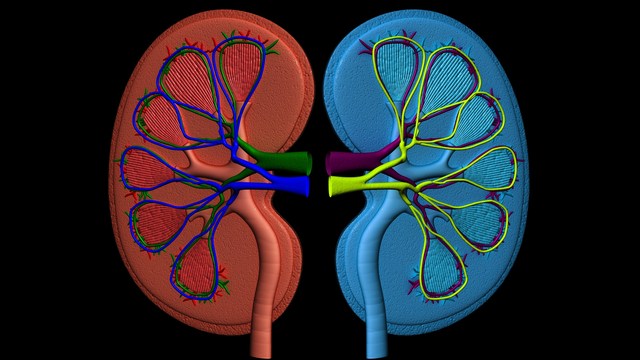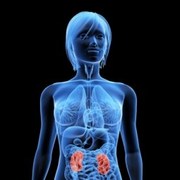Written by Loren Grush
When a patient in need of a kidney transplant finally receives their new organ, their health problems may not necessarily be over. For some kidney recipients, their bodies may ultimately reject the foreign kidney – leading to the organ’s removal and another long wait for a new donor.
However, new research out of the Queen Elizabeth Hospital Birmingham in the U.K. may help prevent this kind of painful rejection in the future. Scientists have discovered a single gene variant in kidney transplant donors that may predict whether or not the transplanted kidney will survive in the recipient.
The gene- the multidrug resistance 1 (MDR-1) gene – was originally identified by the researcher of having a potential impact on kidney rejection and survival, because the protein the gene encodes helps to pump drugs out of cells.
In order for a transplanted kidney to successfully adapt and adhere to a new body’s system, the kidney recipient must take a number of immunosuppressive drugs to prevent rejection – often including a class of drugs called calcineurin inhibitors (CNIs). Unfortunately, these kinds of medications can also come with serious side effects.
“We wanted to look at a link between the genotype of the donor and the risk of transplant failure to CNI toxicity,” Dr. Richard Borrows, in the department of nephrology and kidney transplantation at University Hospital Birmingham and the study’s lead author, told FoxNews.com. “Although they have revolutionized kidney transplantation, they are inherently toxic to the transplanted kidney. There’s a train of thought that that toxicity in turn leads to transplant failure.”
Borrows and his team examined three different cohorts of pairs of kidney recipients and their donors. In the first group of 811 individuals, they looked for 52 gene variants in both the donors and the recipients. Only one gene appeared to be associated with kidney failure – a particular variant of MDR-1.
Overall, the variant was linked with a 69 percent increased risk for long-term transplant failure. Two additional groups of a combined 3,660 donors confirmed the results.
The MDR-1 gene variant affects the expression of the protein that the gene encodes – the drug transporter P-glycoprotein. Donor kidney cells with this kind of variant ultimately have more P-glycoprotein. Originally, the researchers believed that less P-glycoprotein would increase CNI toxicity – and thus increase the chances of organ failure – but instead the opposite was found to be true.
Borrows and his team have a few ideas as to why the increase of P-glycoprotein would potentially lead to kidney transplant failure, but did not test them.
“The presence of P-glycoprotein seems to promote cellular damage by cholesterol and cholesterol esters,” Borrows said. “Also, in animal models, the presence of P-glycoprotein is associated with an increased likelihood of kidney damage when blood supply to the kidney is interrupted. So on one hand, this protein seems to be involved in the transport of CNI inhibitors, and on the other hand it seems to be involved in many other biological processes as well. So we need to tease each of these out.”
If a firm link can be established between the MDR-1 variant and kidney transplant survival, then there could be huge implications for the future of the kidney donor system, Borrows said. If a kidney donor has this genetic variant, then he or she could potentially be excluded from donating, in order to improve the odds of kidney survival for the recipient.
“Certain allocation policies will take into consideration the perceived quality of the donor kidney,” Borrows said. “We have tried and tested measures of that – how old the donor is, if the donor is a live donor or deceased donor, etc. It may be that knowledge of a gene biomarker panel could also be included in that list.”
The study will be published in the upcoming issued of the Journal of the American Society of Nephrology (JASN).
RELATED:
Pfizer kidney cancer drug fails as initial treatment *
http://www.foxnews.com/health/2012/10/17/pfizer-kidney-cancer-drug-fails...
Chance meeting between longtime friends leads to kidney donation
http://www.foxnews.com/health/2012/10/08/chance-meeting-between-longtime...
Lawsuit claims man lost his job due to medical condition
http://www.foxnews.com/health/2012/09/26/lawsuit-claims-man-lost-his-job...
Read more: http://www.foxnews.com/health/2012/10/12/single-gene-variant-may-affect-...





Add a CommentComments
There are no comments yet. Be the first one and get the conversation started!